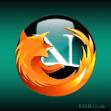Saturday, December 29, 2007
 Netscape Navigator, the world's first commercial Web browser and the launch pad of the Internet boom, will be pulled off life support Feb. 1 after a 13-year run. In recent years, Netscape has been little more than a repackaged version of the more popular Firefox, which commands about 10 percent of the Web browser market, with almost all of the rest going to Internet Explorer:
Netscape Navigator, the world's first commercial Web browser and the launch pad of the Internet boom, will be pulled off life support Feb. 1 after a 13-year run. In recent years, Netscape has been little more than a repackaged version of the more popular Firefox, which commands about 10 percent of the Web browser market, with almost all of the rest going to Internet Explorer:
Its current caretakers, Time Warner Inc.'s AOL, decided to kill further development and technical support to focus on growing the company as an advertising business. Netscape's usage dwindled with Microsoft Corp.'s entry into the browser business, and Netscape all but faded away following the birth of its open-source cousin, Firefox.
"While internal groups within AOL have invested a great deal of time and energy in attempting to revive Netscape Navigator, these efforts have not been successful in gaining market share from Microsoft's Internet Explorer," Netscape Director Tom Drapeau wrote in a blog entry Friday.
People will still be able to download and use the Netscape browser indefinitely, but AOL will stop releasing security and other updates on Feb. 1. Drapeau recommended that the small pool of Netscape users download Firefox instead.
A separate Netscape Web portal, which has had several incarnations in recent years, will continue to operate.
The World Wide Web was but a few years old when in April 1993 a team at the University of Illinois' National Center for Supercomputing Applications released Mosaic, the first Web browser to integrate images and sound with words. Before Mosaic, access to the Internet and the Web was largely limited to text, with any graphics displayed in separate windows.
Marc Andreessen and many of his university colleagues soon left to form a company tasked with commercializing the browser. The first version of Netscape came out in late 1994.
Netscape fed the gold-rush atmosphere with a landmark initial public offering of stock in August 1995. Netscape's stock carried a then-steep IPO price of $28 per share, a price that doubled on opening day to give the startup a $2 billion market value even though it had only $20 million in sales.
But Netscape's success also drew the attention of Microsoft, which quickly won market share by giving away its Internet Explorer browser for free with its flagship Windows operating system. The bundling prompted a Justice Department antitrust lawsuit and later a settlement with Microsoft.
Netscape eventually dropped fees for the software, but it was too late. Undone by IE, Netscape sold itself to AOL in a $10 billion deal completed in early 1999.
Netscape spawned an open-source project called Mozilla, in which developers from around the world freely contribute to writing and testing the software. Mozilla released its standalone browser, Firefox, and Netscape was never able to regain its former footing.
Although I still use AOL for my e-mail (and little else these days), Firefox is my preferred browser. It's simply faster and more reliable than IE in my opinion.

1 comments:
I still (and probably always will) use Netscape as my mail program, as Outlook and the others don't allow me to view attachments inline. I hate having to open yet another window to see what people are sending me.
Post a Comment